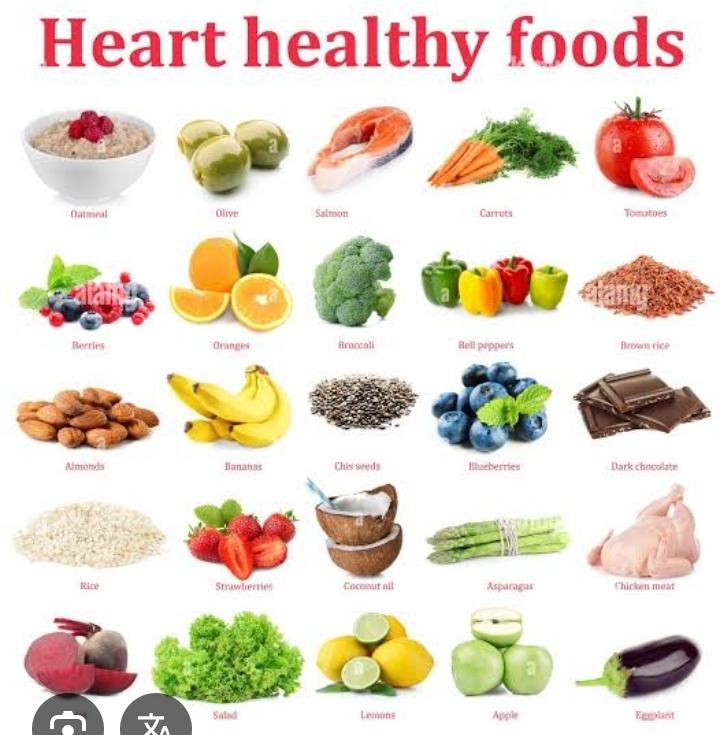Healthy Food: Nourishing Body, Mind, and Planet
In an age where convenience often trumps consciousness, the concept of healthy food stands as a beacon of balance, vitality, and sustainability. Healthy food is more than just a dietary choice—it’s a lifestyle, a philosophy, and a commitment to nurturing the body, mind, and planet. At its core, healthy food refers to meals and ingredients that provide essential nutrients, support bodily functions, and reduce the risk of chronic diseases. It encompasses a wide variety of natural, minimally processed foods rich in vitamins, minerals, fiber, and antioxidants. Fruits, vegetables, whole grains, lean proteins, legumes, nuts, and seeds form the foundation of a healthy diet, offering a symphony of flavors and nutrients that fuel our daily lives.
The importance of healthy food cannot be overstated. It plays a pivotal role in maintaining physical health, enhancing mental clarity, and boosting emotional well-being. Nutrient-dense foods help regulate blood sugar levels, support cardiovascular health, strengthen the immune system, and promote healthy digestion. For instance, leafy greens like spinach and kale are packed with iron, calcium, and folate, which are vital for energy production and cellular repair. Whole grains such as quinoa, brown rice, and oats provide sustained energy and aid in digestive health due to their high fiber content. Lean proteins—found in sources like fish, chicken, tofu, and lentils—are essential for muscle growth, hormone production, and tissue regeneration. Meanwhile, healthy fats from avocados, olive oil, and nuts support brain function and reduce inflammation.
Beyond physical health, the impact of healthy food on mental and emotional well-being is profound. Scientific studies have shown that diets rich in fruits, vegetables, and omega-3 fatty acids can reduce symptoms of depression and anxiety. The gut-brain connection, a burgeoning field of research, reveals that the health of our digestive system directly influences our mood and cognitive function. Probiotic-rich foods like yogurt, kefir, and fermented vegetables help maintain a balanced gut microbiome, which in turn supports mental resilience and emotional stability. Moreover, the act of preparing and consuming wholesome meals fosters mindfulness, gratitude, and a deeper connection to the present moment.
Culturally, healthy food varies across regions, reflecting local traditions, agricultural practices, and culinary heritage. In India, for example, traditional diets emphasize lentils, whole grains, seasonal vegetables, and spices like turmeric and cumin, which have anti-inflammatory properties. The Mediterranean diet, celebrated for its heart-healthy benefits, features olive oil, fresh produce, fish, and moderate wine consumption. Japanese cuisine, known for its emphasis on balance and presentation, includes nutrient-rich staples like seaweed, tofu, and green tea. These cultural diets not only promote health but also preserve biodiversity and foster community through shared meals and rituals.
However, the journey toward healthy eating is not without challenges. Modern lifestyles, urbanization, and aggressive marketing of processed foods have led to a rise in fast food consumption, obesity, and diet-related illnesses. Many people struggle with time constraints, limited access to fresh produce, and conflicting nutritional advice. To overcome these barriers, education and awareness are key. Understanding food labels, meal planning, and cooking skills can empower individuals to make informed choices. Schools, workplaces, and governments also play a crucial role in promoting healthy food through policies, programs, and public campaigns.
Sustainability is another vital dimension of healthy food. The way we grow, distribute, and consume food has significant environmental implications. Industrial agriculture, with its reliance on chemical fertilizers, monoculture, and factory farming, contributes to soil degradation, water pollution, and greenhouse gas emissions. In contrast, sustainable food systems prioritize organic farming, local sourcing, and ethical treatment of animals. Eating seasonally and locally reduces carbon footprints and supports regional economies. Plant-based diets, which require fewer resources than meat-heavy ones, are increasingly recognized as both healthful and eco-friendly. By choosing healthy food, we not only nourish ourselves but also protect the planet for future generations.
Incorporating healthy food into daily life can be both simple and enjoyable. Start by making small changes—swap refined grains for whole grains, choose fresh fruit over sugary snacks, and include a variety of colorful vegetables in every meal. Hydration is equally important; drinking plenty of water and limiting sugary beverages supports overall health. Cooking at home allows for greater control over ingredients and portion sizes, and experimenting with herbs and spices can make meals more flavorful without relying on excess salt or fat. Mindful eating—paying attention to hunger cues, savoring each bite, and avoiding distractions—enhances digestion and satisfaction.
Healthy food also fosters social connection and cultural appreciation. Sharing meals with family and friends strengthens relationships and creates lasting memories. Community gardens, farmers’ markets, and cooking classes bring people together and promote food literacy. Celebrating diverse cuisines encourages respect for different cultures and broadens our culinary horizons. In this way, healthy food becomes a bridge between individuals, communities, and the natural world.
In conclusion, healthy food is a cornerstone of a vibrant, fulfilling life. It nourishes the body, sharpens the mind, uplifts the spirit, and sustains the planet. Embracing healthy eating is not about restriction or perfection—it’s about making conscious, compassionate choices that honor our well-being and the interconnectedness of all life. Whether through a crisp apple, a hearty bowl of lentil soup, or a lovingly prepared family recipe, healthy food invites us to live with intention, joy, and resilience. As we navigate the complexities of modern living, let us return to the wisdom of wholesome nourishment and celebrate the power of food to heal, connect, and transform.

